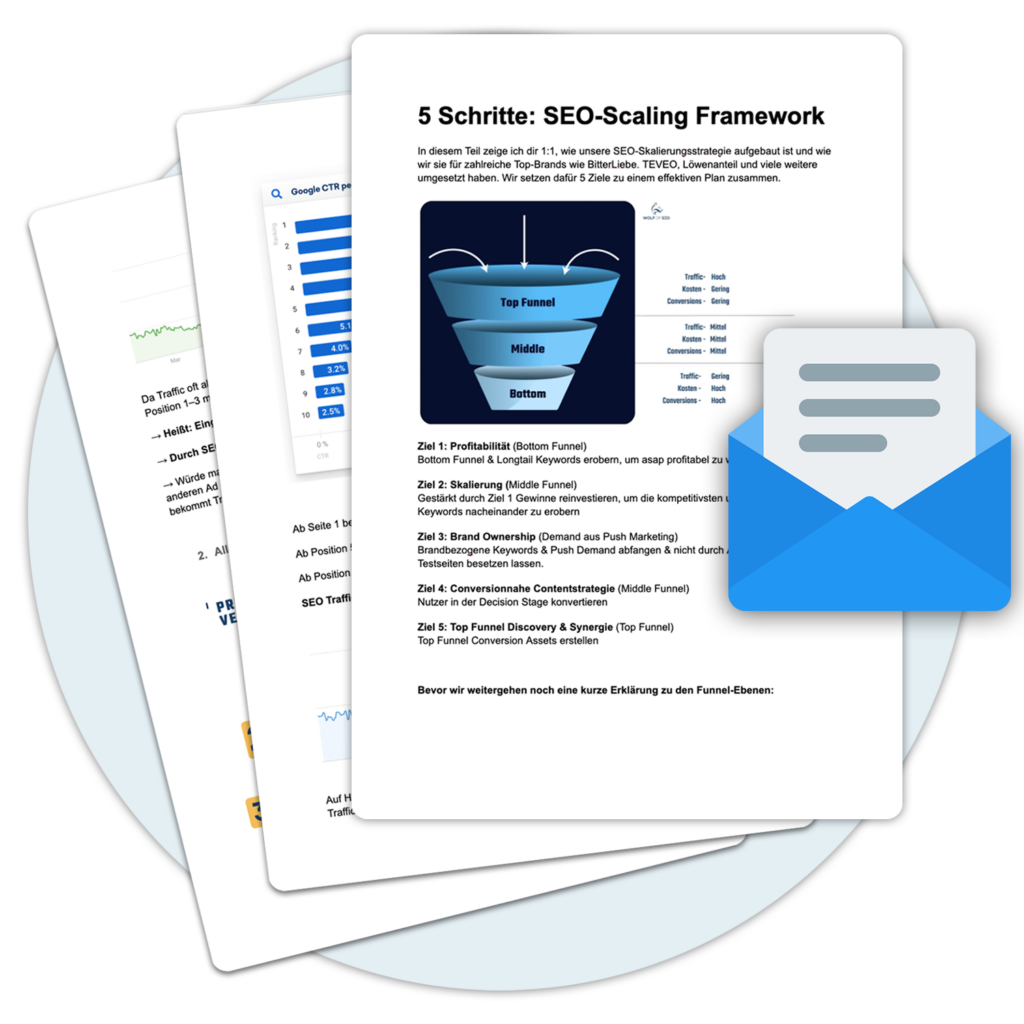Introduction to store systems
A retail revolution is underway, and Store systems are at the center of these dramatic changes. The E-commerce is constantly growing and offers companies of all sizes new opportunities to offer their products or services to a global audience. A store system - also known as E-commerce-platform - is a software solution that makes it possible to operate such online businesses efficiently and effectively. This fundamental building block of digital commerce combines a wide range of functionalities, from product presentation and order processing to payment transactions, under one roof and forms the backbone of online sales.
What are store systems and how do they work?
In essence, they enable Store systems the setup, configuration and administration of an online store. They offer a range of tools and functions for presenting products or services online, processing orders, handling payments and maintaining customer communication. Modern Store systems generally offer a user-friendly interface that allows even non-experts without in-depth technical knowledge to create and manage their online store. From setting up the product catalogs and the layout of the store to selecting payment methods and shipping options, many aspects can be customized.
The diversity of store systems
There are different types of store systems that are tailored to different needs. These include on the one hand SaaS solutions (Software as a Service)where the user pays a monthly fee to operate the store system on the provider's servers. Another option is Open source systemswhich are usually offered free of charge, but generally place higher demands on the user's technical know-how. Then there are the so-called On-premise solutionswhich are installed on the company's own server. The choice of the right system depends on many factors, including the size of the company, the budget, the desired functions and the degree of customization required.
Choosing the right store system
When choosing a store system, entrepreneurs should keep their specific needs and requirements in the foreground. The question of whether a SaaS solution or a self-hosted system is the better choice depends on various factors, including flexibility, control, costs and technical requirements. It is also important to look at the long term and choose a store system that can grow with the business. The importance of an intuitive user interface and reliable customer support cannot be underestimated either, especially for companies that are new to the world of e-commerce. E-commerce are.
In total Store systems the technological basis for success in the E-commerce. The choice of the right system is a decisive factor that determines the user-friendliness, customer loyalty and ultimately the commercial success of the online store. At a time when online retail is becoming more and more important, powerful, adaptable and user-friendly online shops are becoming increasingly important. Store systems is an indispensable part of any digital sales strategy.
Different types of store systems
The world of Store systems is diverse and offers suitable solutions for every business model and company size. There are various types of store systems on the market, which differ in terms of their architecture, range of functions and type of provision.
Software as a Service (SaaS) / cloud systems
With SaaS solutions, the store system is operated on the provider's servers. This means that entrepreneurs have to pay a monthly or annual fee to use the system. The advantage of this Cloud-based solutions is the simplicity and speed of setup and maintenance by the provider. Updates, security patches and technical support are usually included, which makes this option particularly attractive for beginners. Examples for this are ShopifyWix and Jimdo.
Locally installed systems and on-premise solutions
In contrast to SaaS solutions, locally installed systems and on-premise store solutions are operated directly on the company's own server or a rented web server. These variants offer greater control and flexibility in terms of customization and integration. Companies with specific requirements or those that already have their own IT infrastructure often tend to opt for these solutions. A higher technical effort for setup, maintenance and security must be taken into account. Open source systems such as Magento or PrestaShop often fall into this category and offer the advantage that there are no license costs, but there may be costs for hosting, customizations and extensions.
Open source systems
Open sourceStore systems are characterized by their high flexibility and adaptability. As the Source code is publicly accessible, companies can modify the system according to their needs. However, this requires appropriate technical expertise or cooperation with developers. Despite the fact that the basic version is often free, costs may arise for hosting, individual customizations and extensions. Open source systems are therefore particularly suitable for companies that have special requirements and are prepared to invest in the development of their store.
Special solutions for different business models
In addition to the general types of store systems, there are also specialized solutions that are tailored to specific business models or industries. These include platforms for dropshipping, B2B (business-to-business) or B2C (business-to-consumer) with specific functions that meet the particular requirements of these models. For example, some systems offer advanced options for managing wholesale prices or automating supply chains, which optimizes them for certain types of businesses.
Choosing the right store system depends heavily on individual needs, the budget, the desired scalability and the technical expertise of the operator. While SaaS solutions and specialized platforms can provide a quick and easy solution, open source and on-premise systems allow for deep customization and integration. Each option offers unique benefits and challenges that should be carefully considered to ensure the long-term success of the online business.
Important functions of a store system
At the heart of a successful online store is the store system, whose range of functions largely determines user-friendliness, the efficiency of business processes and ultimately the customer experience. While the specific functions depend on the chosen platform, there are some core functions that can be considered fundamental to the performance of any modern store system.
User-friendly interface and adaptability
An intuitive DashboardThe use of a centralized store management system is crucial to minimize administrative effort and maximize productivity. The ability to customize the design and functionality makes it possible to create a unique and attractive shopping experience that optimally presents the brand and stands out from the competition.
Product management
The efficient management of product information, including descriptions, images, prices and stock levels, is a basic requirement for online retail. Features such as product variants, cross-selling or a product configurator help to make the offering more attractive and diverse for customers.
Order and payment processing
A smooth checkout process and support for multiple payment methods, including PayPal and credit cards, are essential to reduce cart abandonment and increase conversion. The ability to process sales in different regions and currencies expands the potential customer base and increases global reach. Range of the store.
Integration and expandability
The ability of a store system to integrate seamlessly into existing business processes and systems, such as warehouse or merchandise management systems, as well as the possibility of adding additional functions through plugins or extensions, offers flexibility and scalability.
Marketing and SEO
Integrated marketing tools for e-mail campaigns, discount promotions and Content-marketing and comprehensive SEO functions support the visibility of the online store and customer acquisition. The analysis and reporting of store data provide valuable insights into customer behavior and the success of marketing measures.
Security and data protection
In a time of growing cyber threats and strict data protection laws, robust security measures are essential to gain and maintain customer trust. This includes SSL encryption, regular security updates and compliance with data protection standards.
In summary, it can be said that the core functions of a store system go far beyond pure product presentation. They include aspects of design, product and order management, payment processing, marketing and security. Choosing a store system that offers performance and flexibility in these key areas is crucial to the success of an online business.
Selection and costs of a suitable store system
Choosing a store system is a crucial decision that can have a long-term impact on the performance, scalability and ultimately the success of an online business. Various factors play a crucial role in the selection process, including the specific requirements of the business, the budget and the desired growth targets. Equally central is an understanding of the costs associated with implementing and operating such a system.
Individual requirements and system selection
Every business has unique needs based on the type of products or services it offers, its customer base, the size of the organization and its long-term goals. Some businesses may require a simple, user-friendly system that is easy to manage, while others may need a highly customizable, extensible system that integrates with complex existing IT landscapes. The ability to support different payment methods, languages and currencies can also be a critical factor, especially for companies that want to operate internationally.
Cost overview and budget planning
The cost of a store system varies considerably and depends on the type of system, the range of features and services required and the size and volume of the business. SaaS solutions often offer good value for money for small to medium-sized businesses with relatively low initial setup costs and monthly subscription fees that include technical support and regular updates. Open source and on-premise solutions may cost less initially, but may require significantly higher expenses for customization, hosting, maintenance and support. In addition, potential costs for integrating third-party tools and extensions should be factored into the overall cost consideration.
Comparison and selection process
There is a wide range of store systems available, from easy-to-use modular systems to powerful, fully customizable solutions. Comparing features, prices and scope of services can be a challenge. Independent review platforms and comparison sites can be valuable resources for gaining an overview of the market situation and choosing the right solution. Store systems that best meet your own requirements. It is important that the decision for a store system is not made solely on the basis of cost, but that factors such as user-friendliness, flexibility, scalability, security features and the quality of support are also taken into account.
Ultimately, choosing a store system is a process that involves careful consideration of your needs, realistic budget planning and thorough market research. It is advisable to consider different systems, test demonstration versions and obtain references from other users to ensure that the selected system is the right solution for the company's current and future requirements.
Integration and customization options
The ability of a store system to integrate seamlessly with existing business processes and systems, as well as offer extensive customization options, is a crucial factor for companies looking to establish or expand an online presence. This flexibility makes it possible to create a customized shopping experience that is precisely tailored to the needs of the company and its customers.
Flexible integration into existing systems
A powerful store system can be easily integrated into existing merchandise management, warehouse management and accounting systems. This enables seamless synchronization of product information, inventory data and customer information between the online store and other business systems, resulting in more efficient operations. In addition, the integration of payment processing providers and shipping service providers is essential to offer a wide range of payment methods and optimize the shipping process.
Expandability through plugins and extensions
The ability to extend the functionality of the store system with plugins or extensions is another important feature. This offers companies the flexibility to equip their online store with advanced functions such as personalized recommendations, automated marketing campaigns, analytical tools and other special functions without having to rewrite the system's core software. The wide availability of extensions also makes it possible to continuously adapt the store to changing requirements and market trends.
Individualization of the customer experience
The customizability of a store system plays a crucial role in creating a unique and engaging customer experience. From customizing the design and layout of product pages to personalizing the checkout process, all of these elements help to highlight the brand and increase customer loyalty. Advanced Store systems also offer options for customer segmentation and targeting to enable targeted promotions and offers based on purchasing behavior.
Overall, the integration and customization capabilities of a store system provide businesses with the flexibility and control necessary to create an online shopping experience that meets the demands of the market and can adapt to the ever-changing needs of customers. Choosing a system that is strong in these areas can make a significant difference in the effectiveness and success of an online store.
Legal aspects and security for store systems
In the digital world, legal aspects and security are crucial for the operation of an online store. They are not only important to gain the trust of customers, but also to ensure compliance with legal requirements and protect against cyber threats.
Legal requirements and data protection
Compliance with the General Data Protection Regulation (GDPR) and other relevant data protection laws is essential for online store operators. This includes the secure processing and storage of customer data as well as transparent data protection guidelines. Store systems must therefore offer mechanisms for obtaining consent to the use of data, for example through cookie banners. It is also important that the texts for the right of withdrawal, terms and conditions and privacy policy comply with current legal requirements and are easily accessible.
Security measures to protect against cyber attacks
A reliable store system should offer robust security features to protect both customer data and the integrity of the online store. These security features include SSL encryption for secure data transfers, regular security updates and patches, and the implementation of firewalls and other security tools. In addition, a regular review of security measures is essential to prevent vulnerabilities and stay up to date with the latest technology.
Requirements for the server infrastructure
The choice of hosting provider and the configuration of the server infrastructure are other important aspects with regard to security and legal compliance. Server locations in Germany or within the European Union generally guarantee greater data security and compliance with the GDPR. In addition, certified hosting services help to ensure that the technical and organizational security of the online store meets the legal requirements.
In summary, it should be noted that the consideration of legal aspects and the implementation of security measures is a fundamental requirement for the operation of an online store. This includes compliance with data protection laws, the implementation of cyber security measures and the careful selection of hosting infrastructure. By taking these aspects into account, online store operators can not only minimize legal risks, but also strengthen the trust of their customers and thus contribute to the long-term success of their business.
« Back to Glossary Index





 By
By 